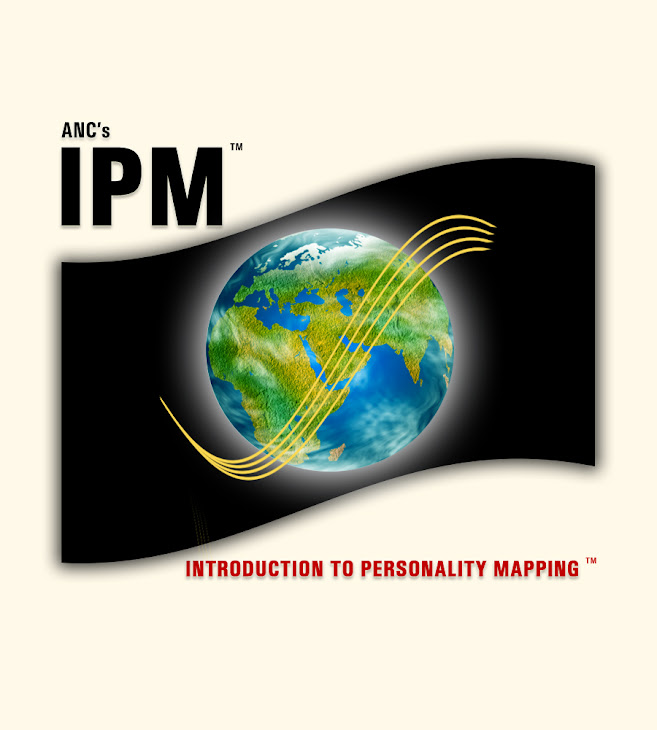Personality Test
A personality test aims to describe aspects of a person's character that remain stable throughout that person's lifetime, the individual's character pattern of behavior, thoughts, and feelings. An early model of personality was posited by Greek philosopher/physician Hippocrates. The 20th century heralded a new interest in defining and identifying separate personality types, in close correlation with the emergence of the field of psychology. As such, several distinct tests emerged; some attempt to identify specific characteristics, while others attempt to identify personality as a whole.
Overview
There are many different types of personality tests. Common personality tests consist of a large number of items, where respondents must rate the applicability of each item to themselves. Projective tests, such as the TAT and Ink Blots are another form of personality test which attempt to assess personality indirectly.
Scoring
Personality tests can be scored using a dimensional or a typological approach. Dimensional approach such as measures of the Big 5 see personality as a set of continuous dimensions that individuals differ on. Typological approaches such as the Myer-Briggs test emphasise discrete categorical types that individuals fall into. Most psychological researchers acknowledge that the dimensional approach is more accurate, although as judged by the popularity of the Myer-Briggs test typological approaches have substantial appeal as a self-development tool.
While most personality tests are designed to be self-report, some tests can be completed by significant others.
Overview
There are many different types of personality tests. Common personality tests consist of a large number of items, where respondents must rate the applicability of each item to themselves. Projective tests, such as the TAT and Ink Blots are another form of personality test which attempt to assess personality indirectly.
Scoring
Personality tests can be scored using a dimensional or a typological approach. Dimensional approach such as measures of the Big 5 see personality as a set of continuous dimensions that individuals differ on. Typological approaches such as the Myer-Briggs test emphasise discrete categorical types that individuals fall into. Most psychological researchers acknowledge that the dimensional approach is more accurate, although as judged by the popularity of the Myer-Briggs test typological approaches have substantial appeal as a self-development tool.
While most personality tests are designed to be self-report, some tests can be completed by significant others.
Norms
The meaning of personality test scores are difficult to interpret in a direct sense. For this reason substantial effort is made by producers of personality tests to produces norms to provide a comparative basis for interpreting a respondent's test scores. Common formats for these norms include percentile ranks, z scores, sten scores, and other forms of standardised scores.
The meaning of personality test scores are difficult to interpret in a direct sense. For this reason substantial effort is made by producers of personality tests to produces norms to provide a comparative basis for interpreting a respondent's test scores. Common formats for these norms include percentile ranks, z scores, sten scores, and other forms of standardised scores.
Test development
A substantial amount of research and thinking has gone into the topic of personality test development. Development of a personality tends to be an iterative process whereby a test is progressively refined. Test development can proceed on theoretical or statistical grounds. Theoretical strategies can involve taking psychological or other theory to define the content domain and then developing test items that should in principle measure the domain of interest. This can then be accompanied by assessment by experts of the developed items to the defined construct. Statistical strategies are varied. Common strategies involve the use of exploratory factor analysis and confirmatory factor analysis to verify that items that are proposed to group together into factors actually do group together empirically. Reliability analysis, and Item Response Theory are additional complimentary approaches.
A substantial amount of research and thinking has gone into the topic of personality test development. Development of a personality tends to be an iterative process whereby a test is progressively refined. Test development can proceed on theoretical or statistical grounds. Theoretical strategies can involve taking psychological or other theory to define the content domain and then developing test items that should in principle measure the domain of interest. This can then be accompanied by assessment by experts of the developed items to the defined construct. Statistical strategies are varied. Common strategies involve the use of exploratory factor analysis and confirmatory factor analysis to verify that items that are proposed to group together into factors actually do group together empirically. Reliability analysis, and Item Response Theory are additional complimentary approaches.
Test evaluation
There are several criteria for evaluating a personality test. Fundamentally a personality test is expected to show reliability and validity.
There are several criteria for evaluating a personality test. Fundamentally a personality test is expected to show reliability and validity.
Read the full material at: wikipedia.org


No comments:
Post a Comment